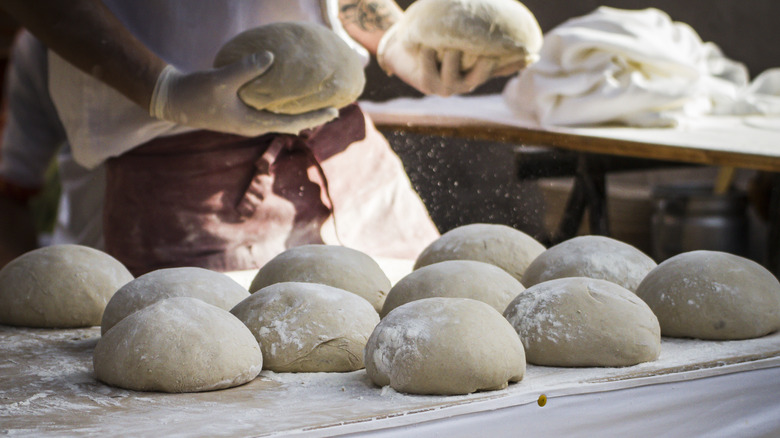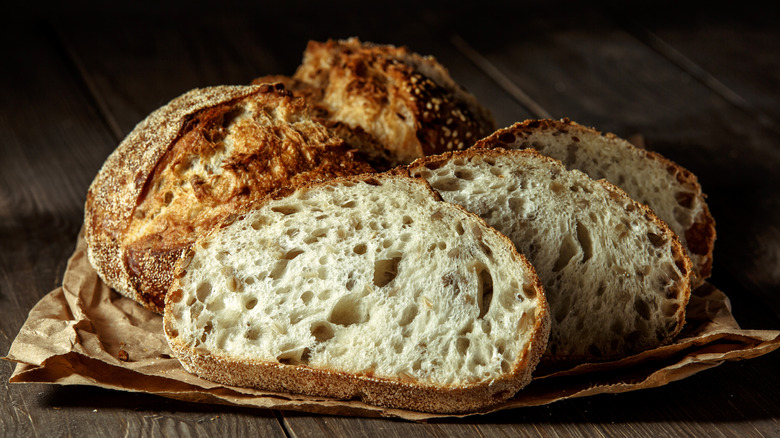The Historical Reason A Baker's Dozen Is 13
The history of bread is quite complicated, even when it comes to descriptive terms as simple as a "baker's dozen." While a dozen typically refers to 12 of an item, a baker's dozen is understood to mean 13, per The Phrase Finder. So where does the extra item come from? Bakers certainly cannot be bad at counting — they need to be good at basic math in order to do their jobs. Many theories as to where the baker's dozen came from have popped up over the years. Some people believe that bakers occasionally have extra batter leftover, making an extra muffin or two so it doesn't go to waste. Others believe that bakers sometimes feel generous, throwing in extra just to be nice.
While these sentiments may have some truth today, the real reason this tradition started is actually quite the opposite. The invention of a baker's dozen actually arose from a 13th-century law that regulated the weight of a loaf of bread — preventing unscrupulous bakers from serving customers skimpy loaves in an attempt to increase profits.
King Henry III regulated the price of a loaf of bread
In medieval England, bakers were notorious for making unreasonably small loaves to increase the amount of money they could pocket. This angered King Henry III, who, in 1266, decided to regulate the price of a loaf of bread. This law was known as the Assize of Bread and Beer, according to Fordham University. This law, which was relatively tame compared to other aspects of medieval culture, based the price of bread and beers on the price of the wheat used to make them. This was done by measuring the weight of the loaf. Bakers who sold loaves at a higher price than legally allowed could be subject to a beating, fines, or even jail time.
To avoid being punished for underselling to customers, bakers began throwing in an extra loaf or two in larger orders. This commonly meant throwing on a 13th loaf in an order of a dozen. To be extra sure, sometimes bakers would even throw on a 14th to avoid being flogged. By adding an extra loaf or two, bakers prevented themselves from accidentally underselling customers.
Baking consistently is tough
If bakers were so worried about breaking the law, why didn't they just try harder to make sure their loaves were baked to the correct weight? Baking loaves consistently can be very difficult. This was especially true in medieval England, where bakers did not have access to modern baking tools. Bread can often be unpredictable. The time it takes to rise, the amount of air that gets trapped in the dough, and the exact measurements of the ingredients all can play a factor in the final weight of a single loaf.
The extra loaf, then, was added to a dozen to account for possible inconsistencies in the baking of each individual loaf of bread, according to The Phrase Finder. The hope was that this would balance out the final weight of the total order, preventing it from being measured as weighing too little. Since the law was based on weight and not the number of loaves, it made more sense legally to give the customer a little extra than to give them the amount they ordered and it not weigh enough.


